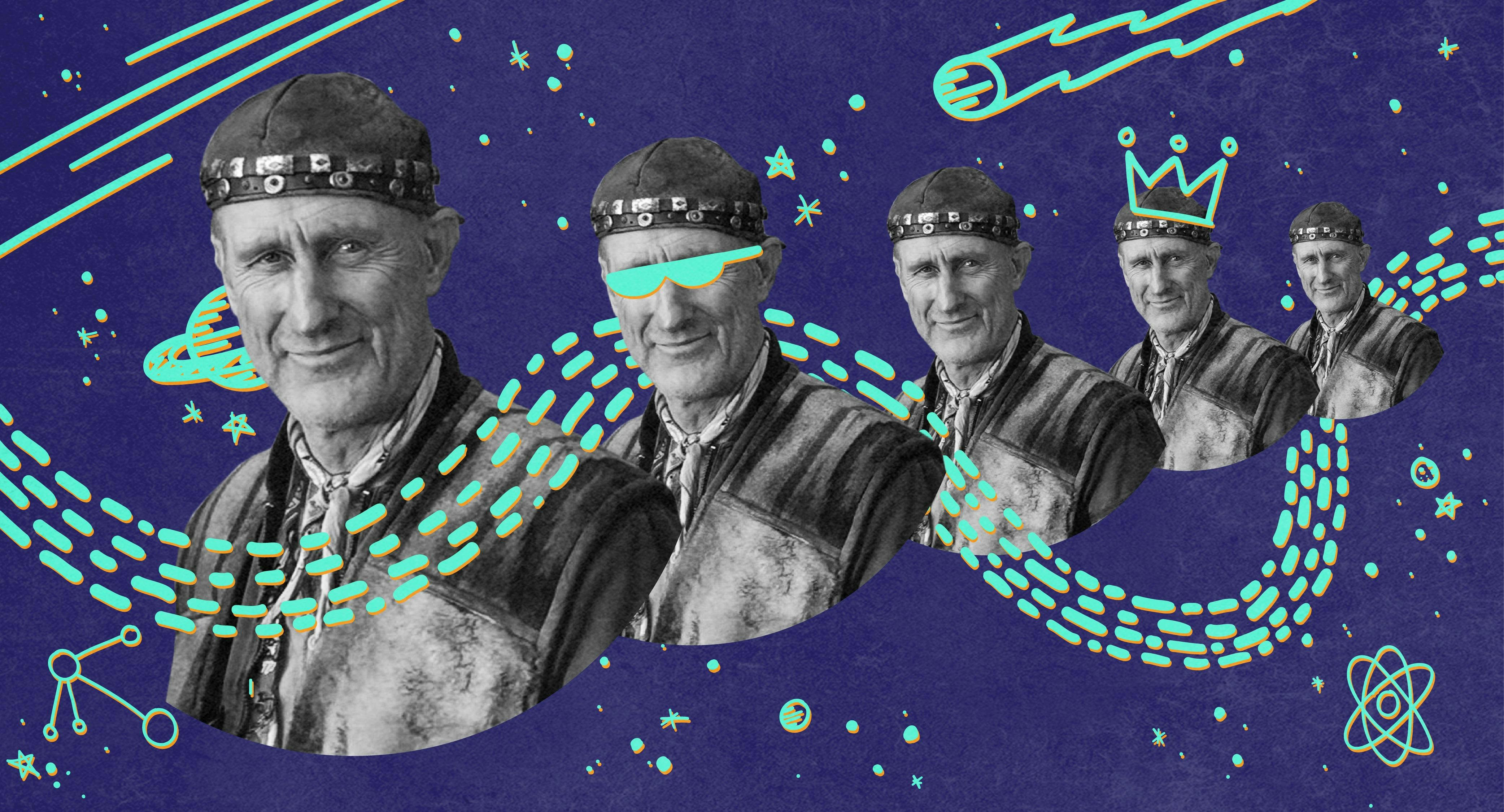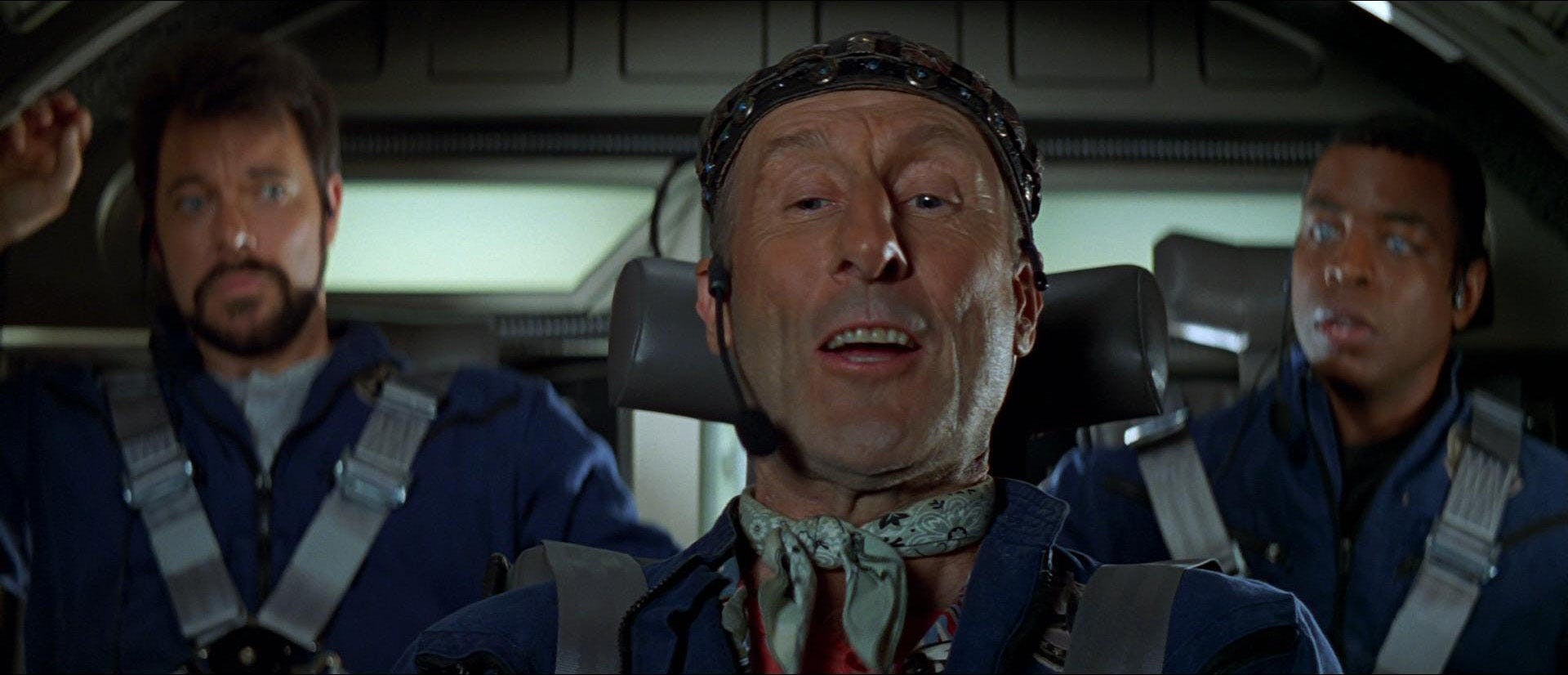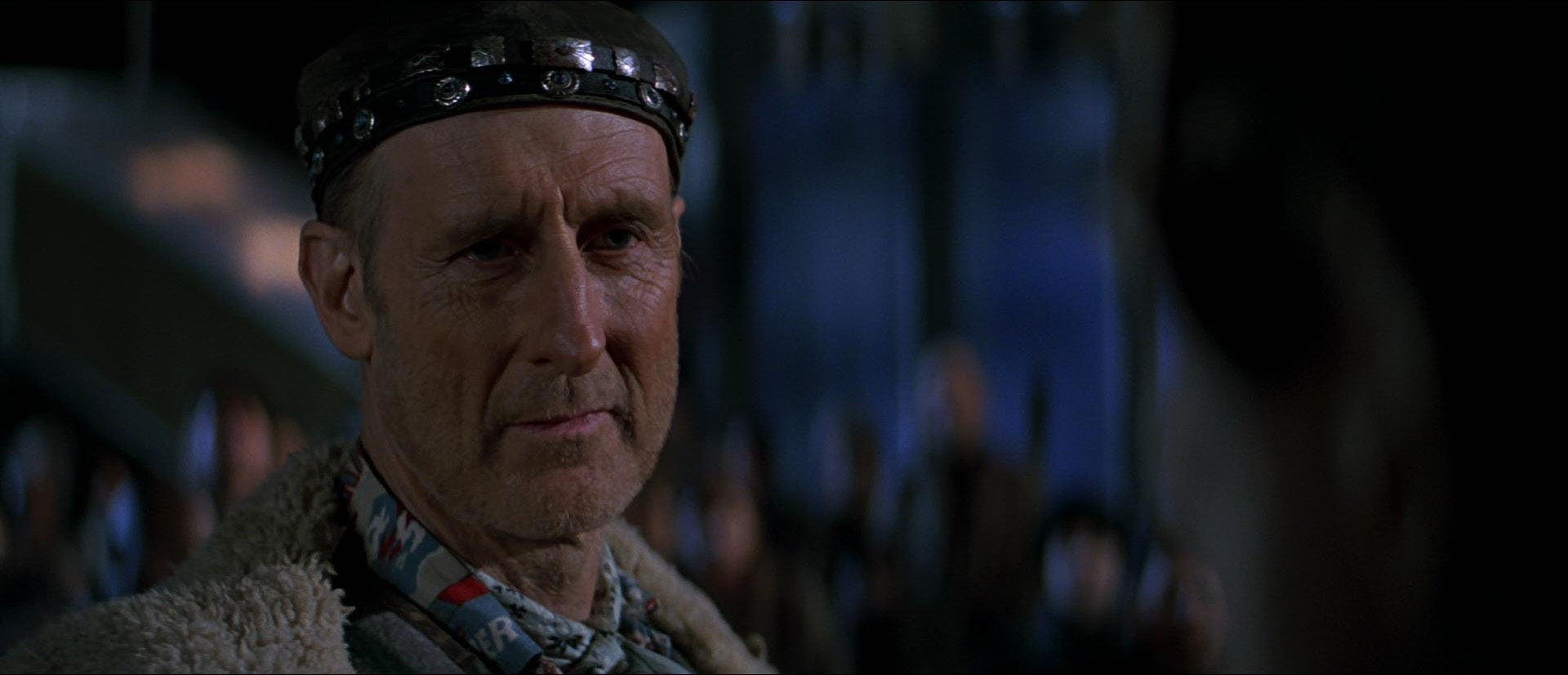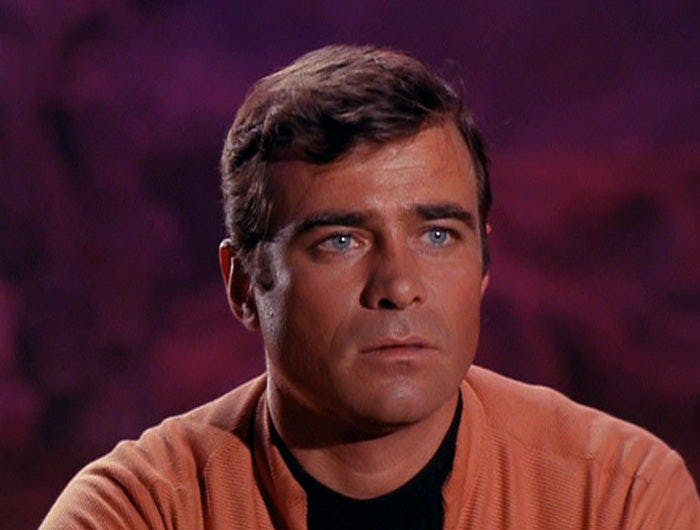Published Nov 22, 2021
The Legacy of Zefram Cochrane
First Contact pulled back the curtain to reveal that Zefram Cochrane was a flawed man like any other — and that's what makes him so great.

StarTrek.com
“The name of Zefram Cochrane is revered throughout the known galaxy. Planets were named after him. Great universities, cities.” - Spock
Despite making only a few appearances, Dr. Zefram Cochrane casts a long shadow on the entire Star Trek franchise. He was, after all, the man who helped launch humanity’s journey to the stars by creating Earth’s first Warp Drive, and the one who established First Contact with the Vulcans. Cochrane’s research, creations, and even his philosophy directly led to the creation of the United Federation of Planets and Starfleet. All of that made Cochrane a legend in his own time, and beyond.
Cochrane made his debut in the Star Trek: The Original Series episode, ‘Metamorphosis.” That story introduced viewers to a rejuvenated Cochrane who had spent over 150 years locked away from the rest of the universe. It was ultimately the end of Cochrane’s story. But thanks to the unpredictable nature of time travel, Cochrane’s reintroduction in Star Trek: First Contact came in the past when he was still a much older man.
Rather than building on Cochrane’s reputation as a visionary figure, First Contact pulled back the curtain to reveal that the Zefram Cochrane of legend was simply a flawed man like any other. He openly admitted that he didn’t create humanity’s first Warp Drive for anything other than monetary gain. Cochrane only did it because he wanted to be rich.
Coming face-to-face with the crew of the Enterprise-E was an eye-opening experience for Cochrane. But he was initially horrified at the way that they had mythologized him. They saw him as a great visionary, and the guiding light of their high-minded principles. His excessive drinking, somewhat lewd behavior, and even cowardice flew in the face of that perception. Cochrane didn’t want to be the man they described because he didn’t know how to be that person.

StarTrek.com
The prospect of having to live up to his own image caused Cochrane to briefly run away before the launch of his ship, the Phoenix. William Riker and the crew had to literally stun Cochrane to get him back into the Phoenix to play his role in history. Riker and Geordi La Forge even served as co-pilots to help the Phoenix make its first interstellar journey while the rest of the crew fought the Borg on the Enterprise. Even under these adverse conditions, this Warp Drive test flight was a complete success.
Although the Borg had attempted to prevent humanity’s First Contact, history continued unimpeded. As witnessed by Jean-Luc Picard and his crew, a Vulcan ship detected the Warp Drive’s flight and landed on Earth to introduce themselves. Picard barely even had to nudge Cochrane forward, before he rose to the occasion and extended his hand in friendship to the alien visitors. It’s a very genuinely powerful moment in the film, and it exemplifies the way that Star Trek shows us humanity at its best.
It could have gone very differently. In Star Trek: Enterprise’s “In a Mirror, Darkly, Part 1,” Cochrane did not offer his hand to the Vulcans. Instead, the Mirror Universe version of Cochrane embraced his darker nature and murdered the would-be ambassador, before storming the Vulcan ship. That led to the formation of the Terran Empire, rather than the Federation. Instead of explorers, the humans of the Mirror Universe became reviled conquerors.
Surprisingly, Enterprise furthered Cochrane’s legend by giving him a personal link to the show’s captain, Jonathan Archer. Cochrane and Archer’s father, Henry Archer, collaborated on the Warp Five Engine. The elder Archer and Cochrane were close, although Jonathan Archer rarely interacted with the famed inventor. Despite that, in “Broken Bow,” Archer took inspiration from one of Cochrane’s most famous speeches.
“Imagine it. Thousands of inhabited planets, at our fingertips. And we'll be able to explore those strange new worlds and seek out new life, and new civilizations. This engine will let us go boldly, where no man has gone before."

StarTrek.com
Canonically, that makes Cochrane the originator of the creed that appeared in the opening credits for both Star Trek: The Original Series and Star Trek: The Next Generation. Of course, it’s easy to predict the future when it has already paid a visit. According to the Enterprise episode, "Regeneration,” Cochrane briefly let his guard down and revealed the existence of both the Borg and the Enterprise-E’s crew. However, Cochrane’s incomplete details and his tendency to exaggerate led most observers to believe that this was simply another tall tale.
Cochrane’s final appearance in “Metamorphosis” was technically also his first. But it was also the first time that he appeared as a young man. When he was 87 years old, Cochrane left his home on the Alpha Centauri colony for one last voyage. But instead of dying in space, Cochrane was rescued by the alien entity known as the Companion. They lived together on an asteroid for over a century-and-a-half, with the Companion tending to Cochrane’s every need. It even rejuvenated Cochrane back to his mid-thirties, and seemingly gave him immortality.

StarTrek.com
Through Spock’s modification of the universal translator, Cochrane learned that the Companion was female, and in love with her younger charge. Cochrane was initially repulsed, and unable to accept his feelings until the Companion merged with Nancy Hedford, a Federation representative who was on the verge of death. The Companion/Nancy offered to let Cochrane escape with Kirk, Spock, and McCoy. But instead, Cochrane professed his love for her and decided to remain with the Companion and grow old together.
As a final request, Cochrane asked Kirk to keep the secret of his survival. "I have honors enough,” said Cochrane. We can only assume that Cochrane and the Companion lived out their normal lifespans after Kirk’s departure. But the legend of Zefram Cochrane endures even today. Creating the Warp Drive would have been enough to earn Cochrane a place in history. Yet it was his ability to rise above his own prejudice, greed, and other vices that make Cochrane a man worthy of adulation.
A Timeline Through the Star Trek Universe
Blair Marnell (he/him) is a featured writer for Superhero Hype, Marvel.com, SYFY.com, Digital Trends, and several other geek media outlets. He's also been a big Star Trek fan for as long as he can remember.
